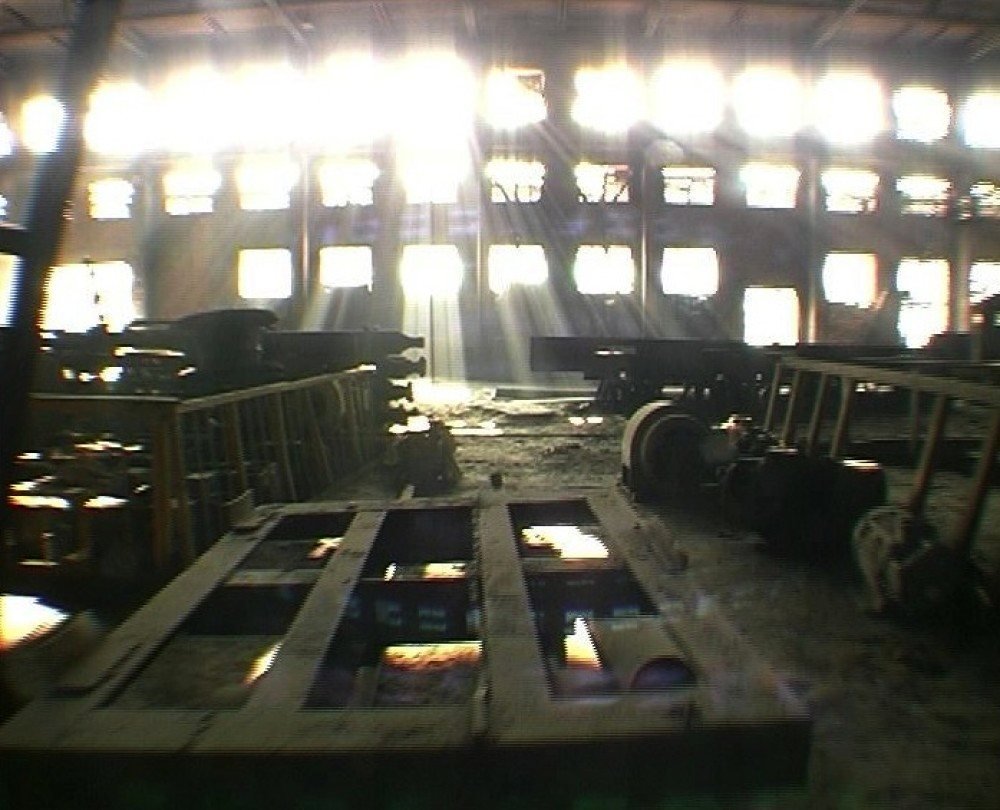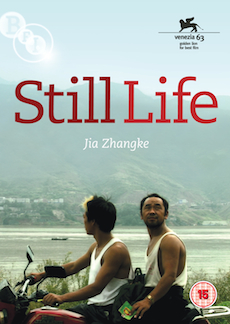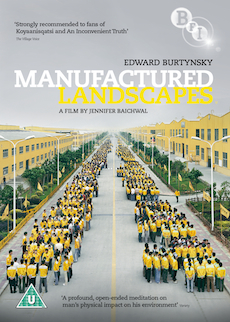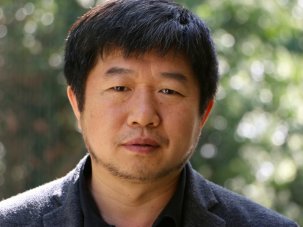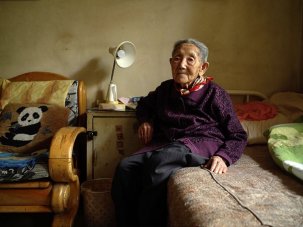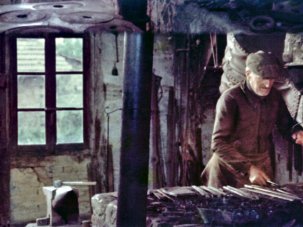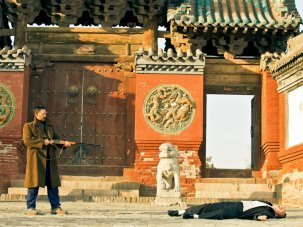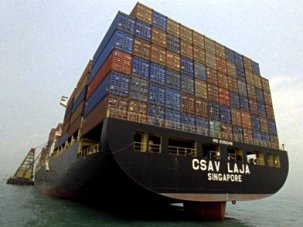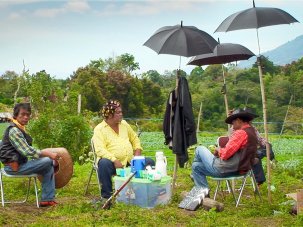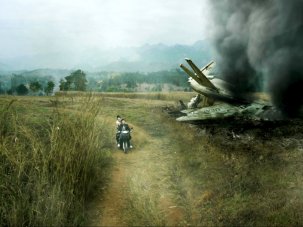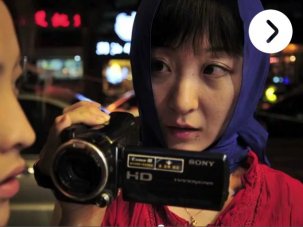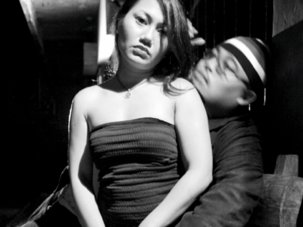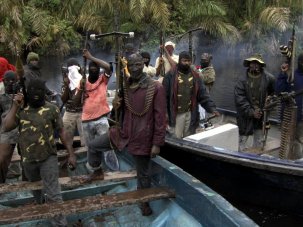Writing about Wang Bang for Cinema Scope’s special 2012 50 Best Filmmakers Under 50 Chris Fujiwara hit the industrial-strength nail on the head: “everything in Wang’s films is labour.” A decade after his epically scaled 2003 debut West of the Tracks (Tie Xi Qu) dropped like a gauntlet in the laps of international filmgoers, the 47-year-old filmmaker stands alongside Jia Zhangke as China’s poet laureate of social upheaval.
Wang Bing: Industrial Films screen 1-4 and 27 March 2014 at the Tyneside Cinema, with an installation of Wang’s 14-hour Crude Oil running 1-31 March at Stephenson Works, both in Newcastle, as part of AV Festival 2014: Extraction.
But where Jia has deservedly become something of a brand-name in the arthouse world – 2013’s towering A Touch of Sin being his most accessible work to date – Wang has been comparatively under-discussed by film critics. Keen Sight & Sound readers will only have seen his name mentioned in international festival reports and year-end best-film roundups; West of the Tracks actually placed a robust 202nd in the magazine’s most recent Greatest Films of All Time poll, yet its screening (over three days) in Newcastle, as part of a programme of a few of Wang’s key works at this March’s AV Festival of art, music and film, is billed as its very belated UK premiere. Let’s approach it.
The AV Festival is thematically curated, and this year’s watchword of ‘extraction’ is a perfect common denominator for Wang’s work; not only because the films themselves depict the violent reshaping of raw materials under the aegis of industry, but because there’s so much than can be pulled out of them.
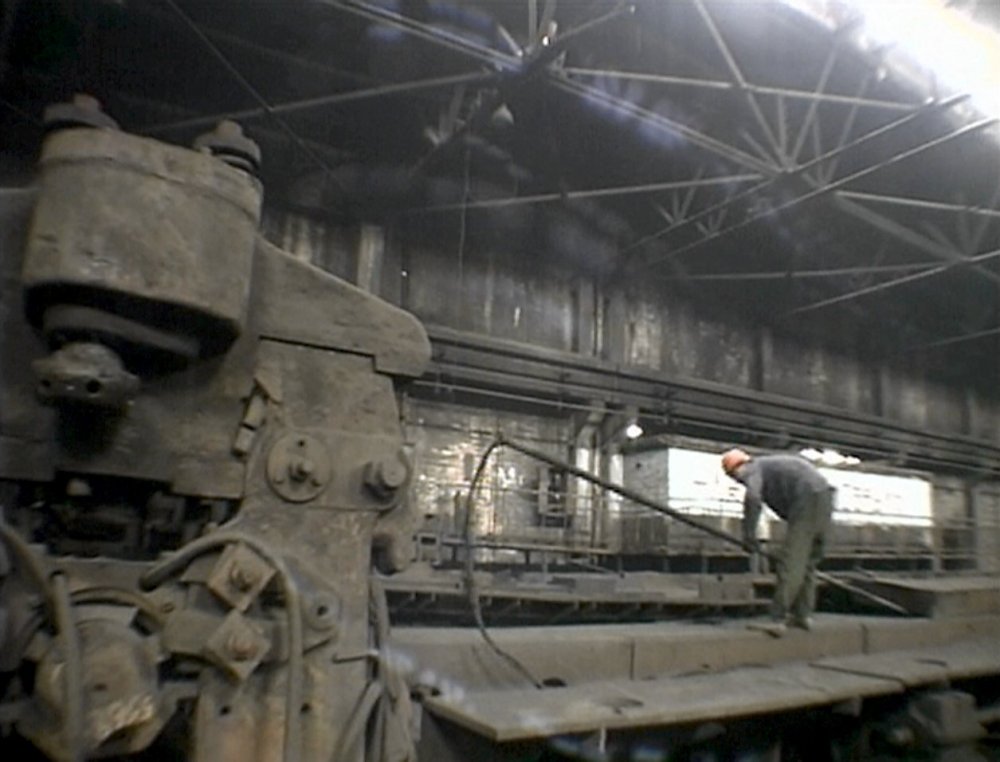
West of the Tracks (Tiexi Qu, 2002)
Extracting the richest material from the 551-minute West of the Tracks is an especially daunting proposition, because the film’s mother-lode-sized running time is indivisible from its impact. Judiciously separated into three alliteratively titled instalments – Rust, Remnants and Rails – Wang’s film was shot over two years in the factory town of Tiexi (a district of Shenyang), straddling the end of the 20th century and the beginning of the 21st and catching China in a moment of extreme and excruciating transition.
The title of the first segment, Rust, is not a metaphor: West of the Tracks opens on images of massive, dilapidated factory complexes blanketed in snow. From a distance, these structures appear to be disused monoliths but eventually Wang’s DV camera penetrates their interiors to describe the waning days of their functionality. It’s obvious that Wang is drawing a parallel between the degraded status of the buildings and the severely unhealthy employees still toiling away within. Even though West of the Tracks is a critical portrait of a collapsing system, it’s hardly sentimental about the institutions that are crumbling to dust.
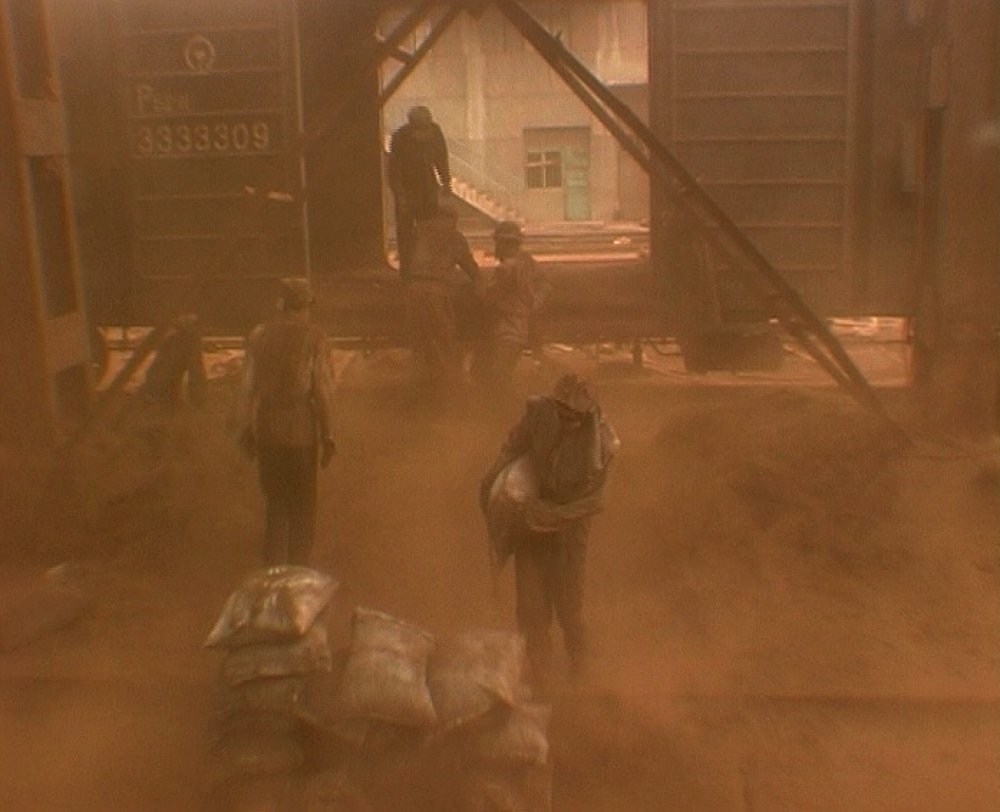
West of the Tracks (Tiexi Qu, 2002)
Rust shows an industrial ecosystem in its death throes, while Remnants offers a portrait of the post-mortem. With the factories scheduled for closure, the inhabitants of the surrounding “Rainbow Row” community learn that their homes are next in line to be razed. There’s a powerful allegory in play here about the dissolution of the collectivist mentality; even in the absence of any cash flow, a strangely capitalist mentality emerges whereby the soon-to-be-displaced workers compete to see who can sell the raw materials of their homes and lives off for scrap.
This is all a prelude to Rainbow Row’s impasse with the land developers descending on their territory. We hear talk of ‘resettlement’ payouts from the government to encourage speedier departures, but some residents cling stubbornly to the homes they’ve lived in for decades. In a superlative close reading of the film for Jump Cut, Jie Li points out that the result of this struggle is large clusters of Rainbow Rowers reverting to a kind of pre-industrial lifestyle – cooking and sleeping without electricity – while Wang stays resolutely by their side. In these moments, West of the Tracks feels as much like a gesture of solidarity as a piece of reportage. His camera remains as restless and uncertain as the people it’s trained on.
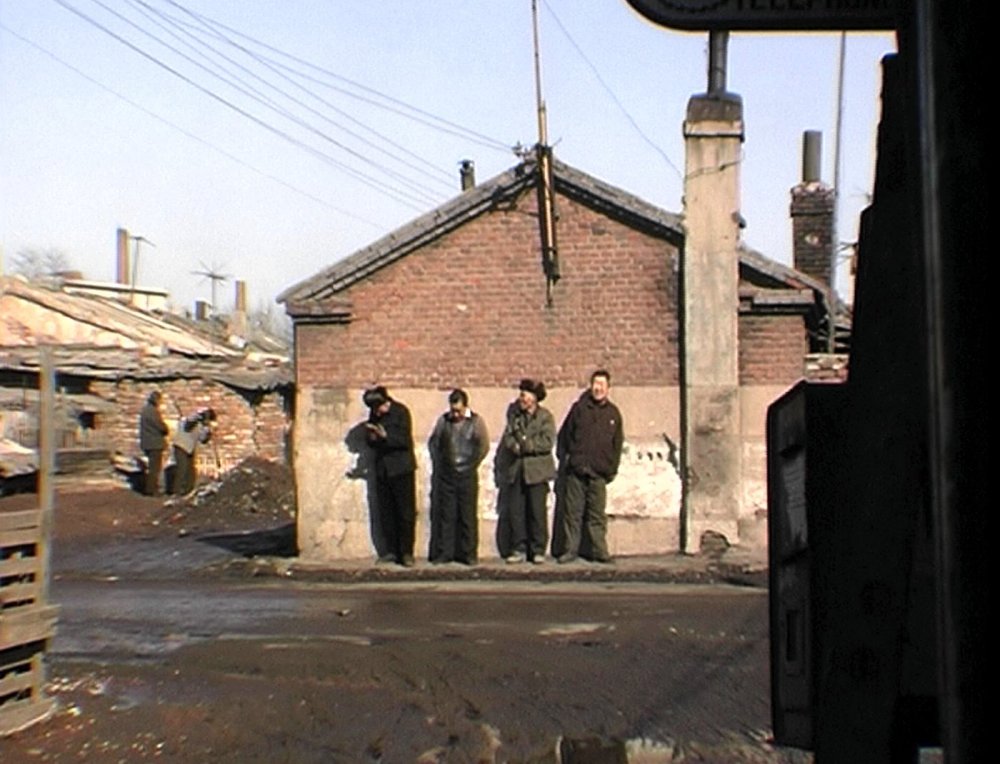
West of the Tracks (Tiexi Qu, 2002)
Rails is where Wang finally makes a concession to narrative, focusing in on two protagonists: Old Du, a coal hoarder who works for the railway men ferrying materials in and out of Tiexi, and Du Yang, his teenaged son. Their family lives under the constant threat of eviction, and yet Wang does not present them as tragic characters. If anything, their stubborn resourcefulness makes them analogues to the indomitable holdouts in Remnants.
When Old Du is captured by the police and thrown in jail, West of the Tracks suddenly takes on the dramatic tension of a great novel. Sitting vigil for his disappeared father in an empty room lit by a single candle, Du Yang suddenly takes on a dimension beyond his years and inexperience. It’s as if he’s suddenly standing in for an entire generation fretting about the fate of their elders – and about its own ability to survive in their absence.
With its focus on fire and embers and fathers and son, Rails evokes yet another ‘R’-monikered masterpiece: Cormac McCarthy’s 2006 Pulitzer-Prize winning novel The Road. That book takes place in the near future, after the end of the world, but West of the Tracks seems no less apocalyptic now for being a kind of period piece.
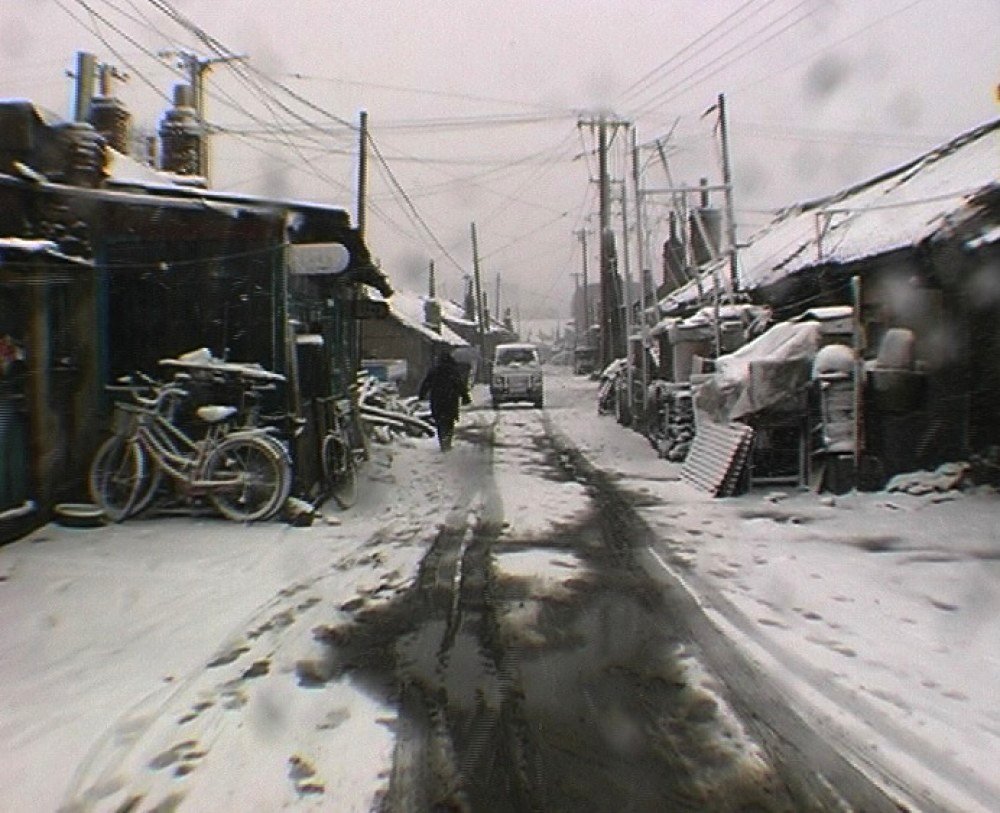
West of the Tracks (Tiexi Qu, 2002)
In the ten year since its premiere, there have been numerous attempts to depict China’s rapidly mangled physical, social and economic topography: standouts include Jia’s Still Life (2008) and two fine Canadian documentaries, Yung Chang’s Up the Yangtze (2004) and Jennifer Baichwal’s Manufactured Landscapes (2006). But none of them possesses the sheer, brute force of Wang’s film, which works an interesting variation on the cinema-of-duration. One can say that nine hours is too long a period of time to spend watching a film, especially one with such a limited entertainment value. At the same time, West of the Tracks is imbued to give a sense of incompleteness; the ultimate impression is one of intimate glimpses in transition.
Wang has gone on to address other issues in Chinese life, past and present, in his other films, even branching out into fiction with 2010’s The Ditch (an AV Festival ‘regional premiere’), a harrowing recreation of the conditions inside a government-sponsored labour camp for political dissidents in the early 1960s. If his movies feel like hard work, let it be said that they’re worth the labour. They’re the sturdy, durable byproducts of a daunting job well done.
-
The Digital Edition and Archive quick link
Log in here to your digital edition and archive subscription, take a look at the packages on offer and buy a subscription.




